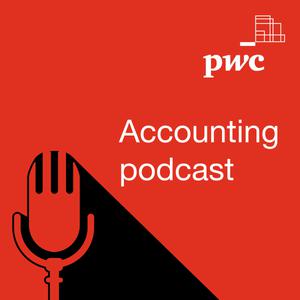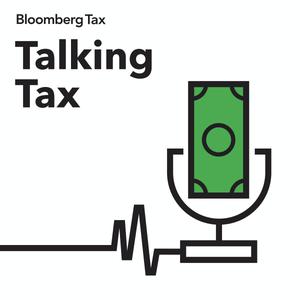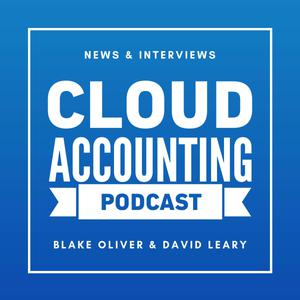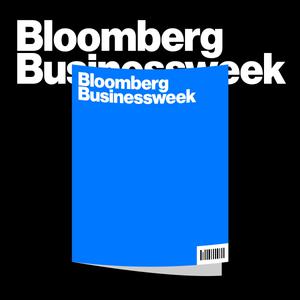
PwC's accounting podcast
PwC
Our accounting podcast features PwC specialists discussing today's most compelling accounting, regulatory and financial reporting issues. From the new leases and revenue standards to CECL to LIBOR rate replacement, PwC Partner Heather Horn hosts each episode tackling a single topic and providing listeners with key takeaways to stay informed on these important accounting matters.
- 45 minutes 16 secondsYear-end toolkit: Engaging effectively with your audit committee
Did you enjoy this episode? Text us your thoughts and be sure to include the episode name.
In each episode of our Year-end toolkit series, our guests share insights on key areas of the year-end accounting and reporting process. The conversations are relevant for all finance teams, even if it’s not year-end close time. And it’s relevant even for those not engaged in the company’s closing process – the episodes have something for everyone.
In this episode, we talk about the audit committee from the perspective of management. We discuss strategies for finance teams as they prepare for audit committee meetings to elevate their effectiveness, along with the top issues audit committees are focused on for 2025.
In this episode, we discuss:- 2:31 – Strategies for improving management communication and collaboration with audit committees
- 5:00 – Key issues finance teams should prepare to address with audit committees in 2025, including:
- 5:23 – Impacts of the presidential administration change
- 8:03 – Best practices for managing the board agenda
- 12:50 – The role of technology transformation and AI in business
- 17:09 – Navigating mergers and acquisitions effectively
- 22:40 – Strengthening risk oversight and enhancing disclosures
- 26:22 – Insights into core areas of audit committee oversight, including financial reporting and controls
- 36:33 – Trends and best practices in public company audit committee disclosures
Additionally, follow this podcast on your favorite podcast app for more episodes.
About our guest:
Stephen Parker is a partner in PwC’s Governance Insights Center, which strives to strengthen the connection between directors, executive teams, and investors by helping them navigate the evolving governance landscape. With more than 30 years of experience, Stephen has advised boards of directors on a variety of complex financial reporting matters. Stephen’s client service experience includes energy and utility companies, financial services companies, and nonprofits.
About our host:
Guest host Kyle Moffatt is PwC’s Professional Practice leader, leading a team responsible for working with standard setters and regulators as well as delivering brand-defining thought leadership and educational materials. He also consults with engagement teams and audit clients on SEC reporting matters. Before PwC, Kyle spent almost 20 years with the SEC, most recently as Chief Accountant and Disclosure Program Director in the Division of Corporation Finance.
Transcripts available upon request for individuals who may need a disability-related accommodation. Please send requests to [email protected].21 January 2025, 7:00 pm - 42 minutes 41 secondsYear-end toolkit: Clarifying the classification of cash flows
Did you enjoy this episode? Text us your thoughts and be sure to include the episode name.
In each episode of our Year-end toolkit series, our guests share insights on key areas of the year-end accounting and reporting process. The conversations are relevant for all finance teams, even if it’s not year-end close time. And it’s relevant even for those not engaged in the company’s closing process – the episodes have something for everyone.
This episode covers the statement of cash flows - what statement of cash flow areas the SEC is focusing on, why it remains a frequent area of restatement, and the most commonly asked questions our team is seeing in practice.
In this episode, we discuss:- 4:11 – Key takeaways from the 2024 AICPA/SEC Conference
- 9:43 – Funds held on behalf of others and assessing predominance
- 18:48 – Non-cash transactions, constructive receipt and disbursement, and the cash flow treatment of cryptocurrency
- 28:50 – Gross versus net cash flows and cash flow treatment of: excise taxes, insurance recoveries, and debt restructuring
- 39:30 – FASB project on the statement of cash flows for financial institutions
For more on the statement of cash flow presentation, see Chapter 6 – Statement of cash flows in PwC’s Financial statement presentation guide.
Bret Dooley is a PwC National Office Deputy Chief Accountant who leads teams focused on the financial services sectors and accounting for financial instruments. He has over 25 years of experience in the financial services, banking, and capital markets industries. Bret focuses on emerging financial reporting issues related to financial instruments, developing interpretive guidance, and assisting clients in resolving complex accounting matters
Suzanne Stephani is a director in PwC’s National Office specializing in the statement of cash flows, as well as the application and interpretation of the accounting guidance related to financing and leasing transactions.
About our host
Guest host Kyle Moffatt is PwC’s Professional Practice leader, leading a team responsible for working with standard setters and regulators as well as delivering brand-defining thought leadership and educational materials. He also consults with engagement teams and audit clients on SEC reporting matters. Before PwC, Kyle spent almost 20 years with the SEC, most recently as Chief Accountant and Disclosure Program Director in the Division of Corporation Finance.
Transcripts available upon request for individuals who may need a disability-related accommodation. Please send requests to [email protected].16 January 2025, 7:00 pm - 45 minutes 38 secondsYear-end toolkit: Navigating materiality assessments
Did you enjoy this episode? Text us your thoughts and be sure to include the episode name.
In each episode of our Year-end toolkit series, our guests share insights on key areas of the year-end accounting and reporting process. The conversations are relevant for all finance teams, even if it’s not year-end close time. And it’s relevant even for those not engaged in the company’s closing process – the episodes have something for everyone.
In this next episode of our series, PwC’s US Assurance Quality Management leader, Michael Mullen, shares insights and key reminders on navigating materiality judgments.
In this episode, we discuss:- 4:51 – A refresher on the framework for assessing materiality and errors in financial statements
- 20:44 – Recent SEC statements and areas of focus relating to materiality and errors
- 31:43 – Considerations related to fraud and illegal acts
- 37:47 – Final advice and key takeaways in navigating materiality assessments
Check out our other episodes in this miniseries:
- Year-end toolkit: Year in review from the corner office
- Year-end toolkit: Accounting and reporting reminders for 2025
- Year-end toolkit: Audit reminders for preparers
- Year-end toolkit: Tax accounting and reporting reminders for 2025
Additionally, follow this podcast on your favorite podcast app for more episodes.
Michael Mullen is PwC’s US Assurance Quality Management leader. In this role, he oversees complex client issues, providing technical insights and expertise in support of overall quality. With over 35 years of client service experience, Michael has led numerous global client engagements.
Kyle Moffatt is PwC’s Professional Practice leader, leading a team responsible for working with standard setters and regulators as well as delivering brand-defining thought leadership and educational materials. He also consults with engagement teams and audit clients on SEC reporting matters. Before PwC, Kyle spent almost 20 years with the SEC, most recently as Chief Accountant and Disclosure Program Director in the Division of Corporation Finance.
Transcripts available upon request for individuals who may need a disability-related accommodation. Please send requests to [email protected].14 January 2025, 7:00 pm - 37 minutes 30 secondsYear-end toolkit: Tax accounting and reporting reminders for 2025
Did you enjoy this episode? Text us your thoughts and be sure to include the episode name.
In each episode of our Year-end toolkit series, our guests share insights on key areas of the year-end accounting and reporting process. The conversations are relevant for all finance teams, even if it’s not year-end close time. And it’s relevant even for those not engaged in the company’s closing process – the episodes have something for everyone.
In this next episode of our series, we discuss tax accounting and reporting reminders with Jennifer Spang, PwC’s National Office income tax accounting leader. We cover a variety of tax accounting and reporting topics, including the impact of recent election results and the associated tax impacts expected in 2025.
In this episode, we discuss:- 2:40 – Anticipated tax implications following the 2024 US election results
- 10:50 – Pillar Two
- 17:36 – The FASB’s disclosure standard
- 21:58 – Uncertain tax positions
- 27:56 – Inflation Reduction Act credits and valuation allowances
- 32:43 – Advice for year-end income tax accounting
For more information about key developments at the AICPA & CIMA conference, see our publication, 2024 AICPA & CIMA Conference: Current SEC and PCAOB Developments and see our publication, Accounting for Pillar Two: Frequently asked questions for the latest on the topic.
Also, check out our other episodes in this miniseries:- Year-end toolkit: Audit reminders for preparers
- Year-end toolkit: Year in review from the corner office
- Year-end toolkit: Accounting and reporting reminders for 2025
And please follow this podcast on your favorite podcast app for more episodes.
Jennifer Spang is PwC’s National Office income tax accounting leader, specializing in tax accounting under US GAAP and IFRS. She has over 30 years of experience helping companies in a variety of industries navigate complex tax accounting matters.
Guest host Kyle Moffatt is PwC’s Professional Practice leader, leading a team responsible for working with standard setters and regulators as well as delivering brand-defining thought leadership and educational materials. He also consults with engagement teams and audit clients on SEC reporting matters. Before PwC, Kyle spent almost 20 years with the SEC, most recently as Chief Accountant and Disclosure Program Director in the Division of Corporation Finance.
Transcripts available upon request for individuals who may need a disability-related accommodation. Please send requests to [email protected].9 January 2025, 7:00 pm - 38 minutes 55 secondsYear-end toolkit: Audit reminders for preparers
Did you enjoy this episode? Text us your thoughts and be sure to include the episode name.
In each episode of our Year-end toolkit series, our guests share insights on key areas of the year-end accounting and reporting process. The conversations are relevant for all finance teams, even if it’s not year-end close time. And it’s relevant even for those not engaged in the company’s closing process – the episodes have something for everyone.
In this next episode of our miniseries, we discuss audit-related reminders for preparers with Brian Croteau, PwC’s US Chief Auditor. In this episode we share timely insights for preparers to consider for the year-end audit, which is another important part of year-end accounting and reporting.
In this episode, we discuss auditing considerations related to:- 3:13 – Key takeaways from the AICPA & CIMA Conference: Current SEC and PCAOB Developments
- 12:06 – Accounting policies and controls
- 20:28 – The execution or modification of significant contracts and agreements
- 23:08 – Complete and accurate disclosures within the financial statements
- 26:48 – Independence
- 28:54 – Known or suspected fraud or illegal acts
- 34:44 – AI in financial reporting
For more information about key developments at the AICPA & CIMA conference, see our publication, 2024 AICPA & CIMA Conference: Current SEC and PCAOB Developments. Also, check out our other episodes in this miniseries:
- Year-end toolkit: Year in review from the corner office
- Year-end toolkit: Accounting and reporting reminders for 2025
Additionally, follow this podcast on your favorite podcast app for more episodes.
Brian Croteau is the US Chief Auditor. He oversees the establishment and maintenance of PwC’s audit policies and practices, leads efforts to directly support PwC’s audit quality objectives, and plays a key role in the monitoring and assessment of audit quality. He also leads the firm’s efforts related to its relationship with the PCAOB, including supporting all aspects of the PCAOB’s inspection process. Brian currently serves as a member of the PCAOB’s Standards and Emerging Issues Advisory Group (SEIAG) and the SEIAG’s Emerging Issues in Auditing subcommittee. Prior to rejoining PwC, he served as the Deputy Chief Accountant of the Professional Practice Group within the Office of the Chief Accountant at the SEC where he played a key role in the SEC’s oversight of the activities of the PCAOB, managed the resolution of auditor independence issues and ethical matters, and monitored audit and independence standard setting internationally.
Kyle Moffatt is PwC’s Professional Practice leader, leading a team responsible for working with standard setters and regulators as well as delivering brand-defining thought leadership and educational materials. He also consults with engagement teams and audit clients on SEC reporting matters. Before PwC, Kyle spent almost 20 years with the SEC, most recently as Chief Accountant and Disclosure Program Director in the Division of Corporation Finance.
Transcripts available upon request for individuals who may need a disability-related accommodation. Please send requests to [email protected].7 January 2025, 7:00 pm - 52 minutes 59 secondsYear-end toolkit: Accounting and reporting reminders for 2025
Did you enjoy this episode? Text us your thoughts and be sure to include the episode name.
In each episode of our Year-end toolkit series, our guests share insights on key areas of the year-end accounting and reporting process. The conversations are relevant for all finance teams, even if it’s not year-end close time. And it’s relevant even for those not engaged in the company’s closing process – the episodes have something for everyone.
In this next episode of our series, we discuss accounting and reporting reminders and timely insights with some of the top technical leaders from our National Office. A one-stop shop for year end, we cover a variety of accounting and reporting topics from contract modifications to financing transactions to segments and many things in between.
In this episode, we discuss accounting and reporting reminders related to:- 2:03 – Natural disasters
- 6:04 – Highly inflationary economies
- 8:20 – Tax regulatory landscape
- 12:07 – Close calls on impairments and other accounting estimates
- 14:13 – Revenue
- 15:56 – Contract modifications
- 25:41 – Capital raising transactions
- 32:35 – Statement of cash flows
- 37:05 – Segment reporting
- 43:28 – Supplier finance obligations
- 44:59 – New standards and looking ahead to 2025
Check out the other episode in this miniseries, Year-end toolkit: Year in review from the corner office. Additionally, follow this podcast on your favorite podcast app for more episodes.
Beth Paul is a Deputy Chief Accountant in PwC’s National Office responsible for a team of consultants that specialize in business combinations and related areas, such as consolidations, disposals, impairments, and segment reporting. She has over 30 years of experience consulting with clients and engagement teams on complex accounting matters.
Bret Dooley is a PwC National Office Deputy Chief Accountant who leads teams focused on the financial services sectors and accounting for financial instruments. He has over 25 years of experience in the financial services, banking, and capital markets industries. Bret focuses on emerging financial reporting issues related to financial instruments, developing interpretive guidance, and assisting clients in resolving complex accounting matters
Pat Durbin is a PwC National Office Deputy Chief Accountant. He has over 30 years of experience consulting with our clients and engagement teams on complex accounting matters, including issues related to revenue, compensation, income taxes, and inventory under both US GAAP and IFRS.
Guest host Kyle Moffatt is PwC’s Professional Practice leader, leading a team responsible for working with standard setters and regulators as well as delivering brand-defining thought leadership and educational materials. He also consults with engagement teams and audit clients on SEC reporting matters. Before PwC, Kyle spent almost 20 years with the SEC, most recently as Chief Accountant and Disclosure Program Director in the Division of Corporation Finance.
Transcripts available upon request for individuals who may need a disability-related accommodation. Please send requests to [email protected].2 January 2025, 7:00 pm - 59 minutes 35 seconds2024 Year-end toolkit: Year in review from the corner office
Did you enjoy this episode? Text us your thoughts and be sure to include the episode name.
In each episode of our Year-end toolkit series, our guests share insights on key areas of the year-end accounting and reporting process. The conversations are relevant for all finance teams, even if it’s not year-end close time. And it’s relevant even for those not engaged in the company’s closing process – the episodes have something for everyone.
To kick off the series, host Heather Horn is joined by Tim Carey, PwC National Office leader, and Kyle Moffatt, PwC National Office Professional Practice leader, to reflect on the key developments of 2024 from their perspectives and look ahead at what’s to come in 2025.
In this episode, we discuss:- 1:45 – External factors impacting accounting and reporting, including the presidential election and the recent AICPA/SEC conference
- 10:11 – Supreme Court case rulings impacting financial regulation and rulemaking from the year
- 15:17 – What’s on the horizon for cryptocurrency accounting and the latest on the cybersecurity disclosure rule
- 27:32 – Notable regulatory activity from the PCAOB, including the costs and benefits of current proposed rules
- 40:21 – What role the FASB plays in the current regulatory and rulemaking landscape
- 47:12 – SEC climate disclosure rule and other sustainability requirements
- 53:30 – What’s in store for 2025
Tim Carey is PwC’s National Office leader, with 30+ years of experience in complex accounting, tax, and reporting issues. Tim has led large-scale teams on a wide range of projects including financial statement audits, transaction structuring, financial due diligence, and post-merger integration.
Kyle Moffatt is PwC’s Professional Practice leader, leading a team responsible for working with standard setters and regulators as well as delivering brand-defining thought leadership and educational materials. He also consults with engagement teams and audit clients on SEC reporting matters. Before PwC, Kyle spent almost 20 years with the SEC, most recently as Chief Accountant and Disclosure Program Director in the Division of Corporation Finance.
Heather Horn is the PwC National Office Sustainability and Thought Leader, responsible for developing our communications strategy and conveying firm positions on accounting, financial reporting, and sustainability matters. In addition, she is part of PwC’s global sustainability leadership team, developing interpretive guidance and consulting with companies as they transition from voluntary to mandatory sustainability reporting. She is also the engaging host of PwC’s accounting and reporting weekly podcast and quarterly webcast series.
Transcripts available upon request for individuals who may need a disability-related accommodation. Please send requests to [email protected].19 December 2024, 7:00 pm - 1 hour 1 minute2024 SEC comment letter trends: Non-GAAP measures
Did you enjoy this episode? Text us your thoughts and be sure to include the episode name.
This final episode of our 2024 SEC comment letter podcast miniseries discusses non-GAAP measures. Non-GAAP measures are commonly used by companies as supplements to their financial statements to deepen investors’ understanding of their performance or financial condition. Given their importance, not only does non-GAAP top the list this year, but it’s been a top focus area for the SEC staff in the last several years, and we expect that trend to continue. We discuss the issues most frequently raised by the SEC staff and offer advice to preparers for getting ahead of them.
In this episode, we discuss:- 3:11 – Overview of non-GAAP comment letter trends
- 9:09 – Insights into comments on basic compliance areas
- 22:24 – Individually tailored accounting principles
- 27:27 – Adjustments for cash operating expenses that are normal and recurring
- 41:17 – Controls over non-GAAP measures
- 46:12 – Advice and other considerations when responding to comment letters
- 51:38 – Potential post-election impacts on the SEC
For more information, see our full analysis of SEC comment letter trends and our publication Earnings with a twist: 2024 update on SEC non-GAAP comment trends. Also, check out our other episodes in this miniseries.
Kevin Vaughn is a PwC National Office partner specializing in SEC reporting matters. Kevin leverages his extensive experience to support PwC public company and pre-IPO clients on accounting and SEC reporting matters. Prior to joining PwC in 2023, Kevin spent over 18 years at the SEC, most recently serving on the leadership team in the SEC’s Office of the Chief Accountant where he focused on technical accounting consultations, SEC rulemakings, and standard setting matters.
Lindsay McCord is a PwC National Office partner specializing in matters related to the SEC and the capital markets. Prior to joining PwC, Lindsay spent over 15 years at the SEC, most recently as the Chief Accountant in the Division of Corporation Finance. In this role, Lindsay led an accounting team in providing technical accounting and reporting support to the Division, including SEC rulemaking, interpretation, and guidance.
Kyle Moffatt is PwC’s Professional Practice leader, leading a team responsible for working with standard setters and regulators as well as delivering brand-defining thought leadership and educational materials. He also consults with engagement teams and audit clients on SEC reporting matters. Before PwC, Kyle spent almost 20 years with the SEC, most recently as Chief Accountant and Disclosure Program Director in the Division of Corporation Finance.
Transcripts available upon request for individuals who may need a disability-related accommodation. Please send requests to [email protected].17 December 2024, 7:00 pm - 23 minutes 57 secondsThe quarter close – Q4 2024 audio version
Did you enjoy this episode? Text us your thoughts and be sure to include the episode name.
PwC provides a summary of the latest accounting, financial reporting, and regulatory updates to support your quarterly reporting.
It is that time of the year again. As 2024 comes to an end, the focus of many companies turns to their annual reporting process. We begin this edition of The quarter close by providing general income tax reminders and highlighting new guidance that will be effective for the first time this year.In regulatory developments, we provide the latest updates on sustainability reporting under the California climate disclosure laws as well as updates on frameworks outside of the US. And although the impact of the recent election remains to be seen, we’ve summarized expected impacts to keep you informed.
As expected, the FASB made significant progress on its agenda by issuing final guidance on both the disaggregation of income statement expenses and induced conversions of convertible debt instruments projects as well as proposals and invitations to comment on several other projects. We provide a summary of all the latest FASB activity.
In this edition of The quarter close, we highlight these and other relevant accounting and reporting topics you should consider as you close out 2024.
Transcripts available upon request for individuals who may need a disability-related accommodation. Please send requests to [email protected].16 December 2024, 7:00 pm - 43 minutes 33 secondsPwC’s global investor survey: What's top of mind for 2025?
Did you enjoy this episode? Text us your thoughts and be sure to include the episode name.
PwC recently released the results of our 2024 Global Investor Survey, which was conducted to better understand investor expectations and concerns about corporate reporting and the evolving business landscape. The annual survey results highlight the importance of transparency in technology use, especially Artificial Intelligence (AI), and the need for companies to adapt to global threats, climate change, and regulatory developments.
This week, host Heather Horn is joined by Nadja Picard, PwC Global Reporting Leader, to break down the results and discuss the sometimes differing expectations between companies and investors. They also address how companies can better meet investor expectations through both action and communication.
In this episode, we discuss:- 01:31 – Purpose of the 2024 global investor survey and demographics of survey participants
- 05:11 – Highlights from the global investor survey, including what surprised our Global Reporting Leader most
- 10:19 – Expectations to continue investing in AI, while upskilling the workforce
- 14:09 – How investors are thinking about climate adaptation and transition
- 19:41 – How investors evaluate trust and communication year over year
- 25:15 – Cybersecurity ranks number one threat
- 33:28 – Executing well and communicating well to address investor concerns
- 36:29 – Advice for companies navigating a challenging reporting landscape
Looking for the latest developments in sustainability reporting? Follow this podcast on your favorite podcast app and subscribe to our weekly newsletter to stay in the loop for the latest thought leadership on sustainability standards.
Nadja Picard is PwC’s Global Reporting Leader. In this role, she leads PwC’s global initiative to help clients transform their corporate reporting to meet investor and stakeholder demands for trusted and assured reporting beyond financial reporting. Nadja also advises companies on the accounting, corporate reporting, and investor relations requirements in advance of capital markets transactions, especially IPOs.
Heather Horn is the PwC National Office Sustainability and Thought Leader, responsible for developing our communications strategy and conveying firm positions on accounting, financial reporting, and sustainability matters. In addition, she is part of PwC’s global sustainability leadership team, developing interpretive guidance and consulting with companies as they transition from voluntary to mandatory sustainability reporting. She is also the engaging host of PwC’s accounting and reporting weekly podcast and quarterly webcast series.Transcripts available upon request for individuals who may need a disability-related accommodation. Please send requests to [email protected].
12 December 2024, 7:00 pm - 57 minutes 8 secondsForeign private issuers – SEC comment letter trends and more
Did you enjoy this episode? Text us your thoughts and be sure to include the episode name.
This next episode of our 2024 SEC comment letter podcast miniseries discusses Foreign Private Issuers (FPIs). Many of the considerations we talk about for other SEC filers also apply to FPIs; however, there can be some differences and added complexities. We discuss the issues most frequently raised by the SEC staff, including those unique to FPIs, and offer advice to preparers for getting ahead of them.
In this episode, we discuss:- 7:24 – Comment letter trends specific to FPIs, including those related to:
- 8:55 – Non-GAAP performance measures
- 16:15 – Segment reporting
- 21:32 – Revenue
- 25:01 – Management’s Discussion and Analysis
- 30:29 – Financial instruments
- 41:39 – FPI status re-assessment
- 44:53 – IFRS segment reporting considerations
- 47:45 – Other accounting and reporting reminders related to FPIs
For more information, see our full analysis of SEC comment letter trends. Also, check out our other episodes in this miniseries:
- SEC comment letters – What’s trending in 2024
- 2024 SEC comment letter trends: Revenue
- 2024 SEC comment letter trends: Business combinations
- 2024 SEC comment letter trends: Segment reporting
- 2024 SEC comment letter trends: MD&A
Additionally, follow this podcast on your favorite podcast app for more episodes.
Patrick Higgins is a Deputy Chief Accountant in PwC’s National Office responsible for our SEC foreign private issuer and IFRS teams. Patrick has also served as a global signing partner in a variety of countries and industries.
Kevin Vaughn is a PwC National Office partner specializing in SEC reporting matters. Kevin leverages his extensive experience to support PwC public company and pre-IPO clients on accounting and SEC reporting matters. Prior to joining PwC in 2023, Kevin spent over 18 years at the SEC, most recently serving on the leadership team in the SEC’s Office of the Chief Accountant where he focused on technical accounting consultations, SEC rulemakings, and standard setting matters.
Kyle Moffatt is PwC’s Professional Practice leader, leading a team responsible for working with standard setters and regulators as well as delivering brand-defining thought leadership and educational materials. He also consults with engagement teams and audit clients on SEC reporting matters. Before PwC, Kyle spent almost 20 years with the SEC, most recently as Chief Accountant and Disclosure Program Director in the Division of Corporation Finance.
Transcripts available upon request for individuals who may need a disability-related accommodation. Please send requests to [email protected].10 December 2024, 7:00 pm - 7:24 – Comment letter trends specific to FPIs, including those related to:
- More Episodes? Get the App
Your feedback is valuable to us. Should you encounter any bugs, glitches, lack of functionality or other problems, please email us on [email protected] or join Moon.FM Telegram Group where you can talk directly to the dev team who are happy to answer any queries.
 Talking Tax
Talking Tax
 The Accounting Podcast
The Accounting Podcast
 Accounting Best Practices with Steve Bragg
Accounting Best Practices with Steve Bragg
 WSJ Your Money Briefing
WSJ Your Money Briefing
 Bloomberg Businessweek
Bloomberg Businessweek
 Goldman Sachs Exchanges
Goldman Sachs Exchanges